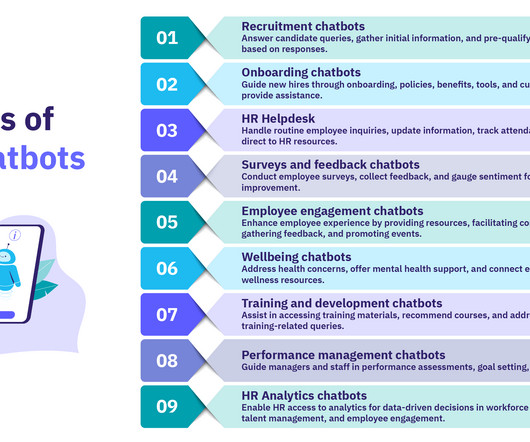Workers are looking – and leaving – for career development
HR Morning
JUNE 11, 2019
Employee development is at the heart of successful talent management. Those resources range from a knowledgeable guide to help them get settled into a new job to the ongoing training needed to acquire and apply new and advanced knowledge, skills, and abilities. Succession planning.
















Let's personalize your content